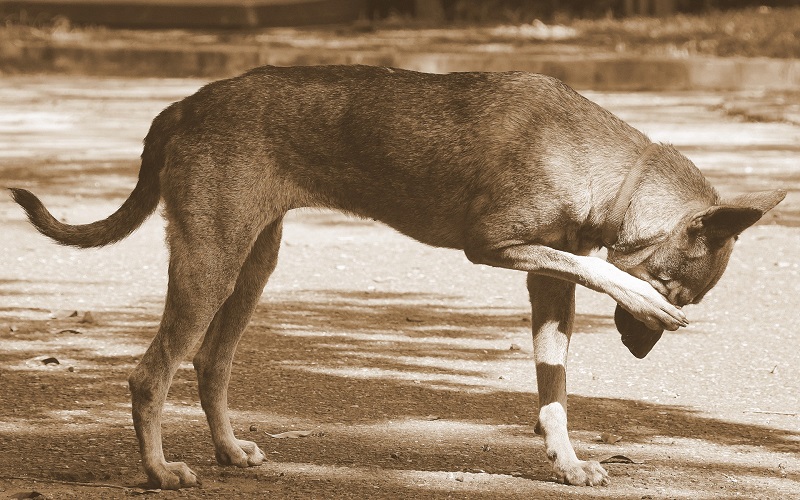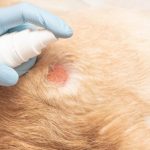If you’ve noticed your pet itching more than normal, it can be disconcerting to witness. The last thing you’ll want is for your beloved pet to be uncomfortable, which is why it’s important to determine the cause and identify measures to safeguard the wellbeing of your dog.
Itch relief is important in situations like these, to soothe your dog’s itchy skin. However, what’s even more important is to rule out other conditions before implementing the requisite treatment methods. The two main causes of itchy skin are allergies and pests, two factors which are usually seasonal.
Consulting with your vet is one of the best ways to diagnose issues, to ensure you’re on the right track to alleviating the discomfort your dog is experiencing.
There are also measures you can take to self-assess your dog. To bring awareness to the situation, here are the main culprits known for causing your dog to itch more than normal:
Table of Contents
Fleas and Ticks
If your dog is itching, the first things to check for are fleas and ticks. These can latch onto anywhere on your dog, using them as a host to extract blood from. Ticks can go unnoticed until they’re large enough to spot with the naked eye, at which point you can seek to remove them.
These insects can carry various infectious diseases, so it’s important to check for them any time your dog returns from an outdoor environment.
Fleas can be equally uncomfortable, causing severe itching and skin reactions, which can require veterinary care. Allergic reactions to flea bites can cause hair loss, swelling, painful hotspots, and even infection, which is why it’s important to check your dog’s coat regularly.
If you suspect an infection, use a flea comb to brush through your dog’s hair. Flea dirt is a sure sign your pet is experiencing issues, alongside the water turning a reddish-brown color when you bathe them. Avoid the spread of fleas with regular inspections, alongside using the following preventative measures to prevent breakouts from occurring:
Preventing Pests
The best way to deal with pests is by preventing them from surfacing in the first place. Keeping pests at bay is far easier than clearing up existing infections. You should use medicated shampoos and preventatives, which corroborate with advice from your vet.
There are many options at your disposal, including long-lasting shampoos, topical medication, flea and tick collars, sprays, and more. If, unfortunately, your pet is infected with fleas or ticks, consult with your vet to derive treatment recommendations. You should also wash your dog’s bedding to eradicate any potential intruders.
Food Allergies
Dogs can be allergic to anything, so if you fail to discover fleas and ticks upon inspection, your dog might have an allergy of some kind. Food allergies, though rare, are a possibility. It’s important to consult with your vet to determine the allergy and best route of treatment.
Finding the Culprit
Eliminating certain foods is a great way to rule out whether your dog is allergic to certain ingredients. You can work with your vet to devise a food plan which eliminates potential trigger foods while ensuring your dog gets its necessary nutrition.
Environmental Allergies
Environmental allergies include sensitivity to things like pollen or dander. If you believe this to be the case and consult with your vet, they may recommend therapeutic food to improve your dog’s skin health.
Protecting Your Pooch
Treatments for itchiness range in extensiveness, from simple grooming to more intense desensitization ‘allergy injections’. When itching persists, stronger medications and steroid injections can be recommended, though it’s important to embrace medical advice before taking matters into your own hands.
Keeping your dog away from pollen can be tough, making it difficult to eliminate the source of environmental allergies. Ensure you wipe your dog down or wash their feet and underbelly when they’ve been outside. This will reduce irritation, alongside bathing your dog if it has been out all day. Specialist shampoos are designed to remove pollen and keep irritation at bay. However, you should remember not to overwash your dog since dry skin can contribute to itchiness too.







